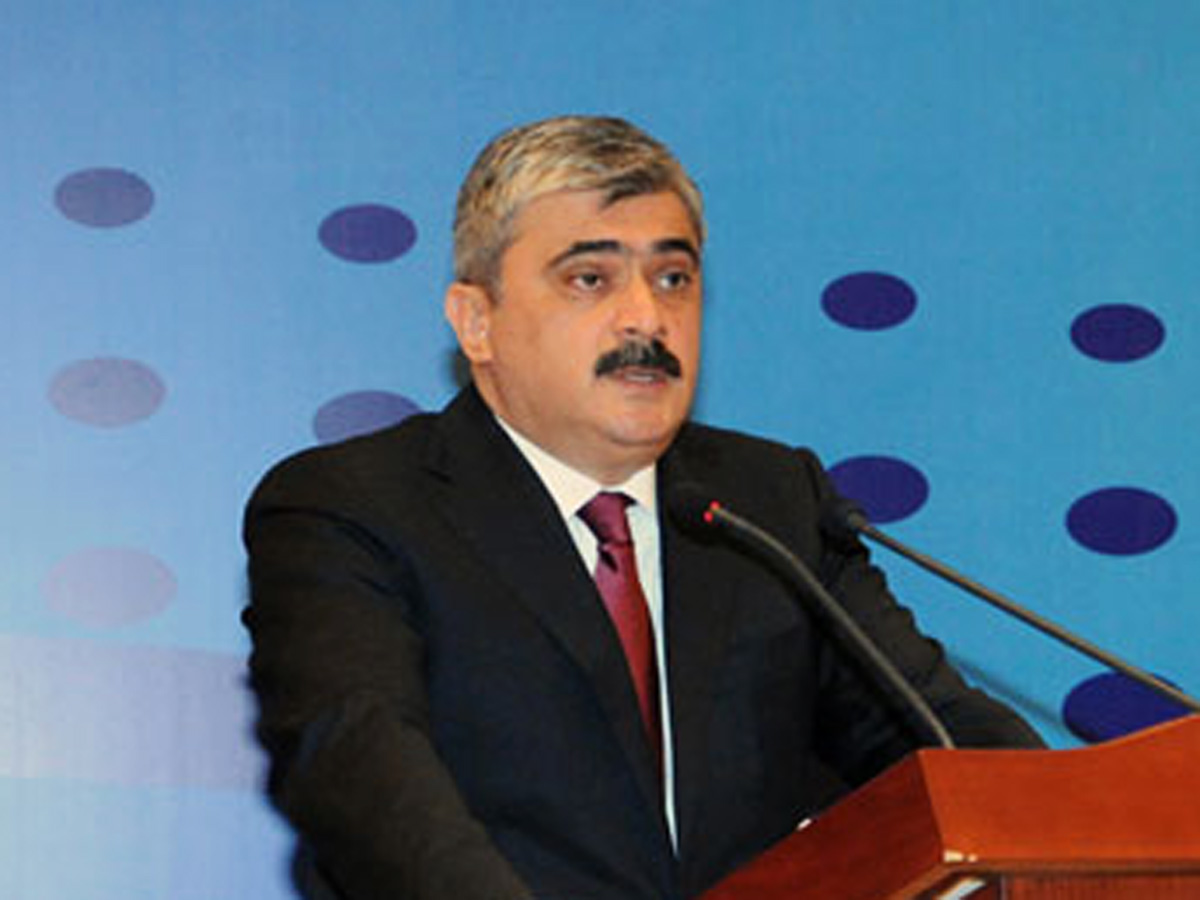Minister says IMF could provide cheaper loans to Azerbaijan

By Nigar Abbasova
Azerbaijan has criticized the International Monetary Fund for its response to the oil price crash, arguing that the stigma associated with borrowing from the Fund has prevented it from supporting energy rich countries.
“The stigma of [needing assistance from] the IMF prevents many countries from approaching the Fund to address a very small problem before it becomes really big,” Samir Sharifov, Azerbaijan’s finance minister, told the Financial Times.
The minister believes that the Fund could provide cheaper loans to Azerbaijan, saying that the country has a little debt and a sovereign wealth fund with the worth of $34 billion.
“For me it is not an issue of bailing out the economy, it is an issue of funding — the way I can get cheap funding.”
In the wake of the collapse of global oil prices, a growing number of governments have shunned the IMF’s emergency lending in favor of low interest loans from the World Bank. The bank said last week that its total lending in the fiscal year to the end of June surged to $61bn largely because of growing demand for such budgetary support.
The IMF tried to address the stigma attached to its emergency lending by creating new precautionary facilities following the 2008 global financial crisis. Those facilities have been tapped by countries such as Mexico and Kenya but their use remains relatively rare. Sharifov said the IMF was working on “four or five new products” to address the issue. “This is the kind of conversation which the IMF is having with many oil rich countries. Some of course borrow from international capital markets. At the same time there is an institution sitting on cash which they cannot basically disburse.”
Baku is in talks with a range of international financial institutions, including the World Bank, European Bank for Reconstruction and Development, Asian Development Bank, for $5bn in loans and guarantees to fund its share of a pipeline project that would deliver Caspian gas directly to Europe for the first time, Sharifov said.
Azerbaijan would be able to fund its share of the project, estimated at $13bn, even without support from international organizations, he added.
“Despite the shock that we have experienced, I believe we are resilient,” Sharifov said.
“President Aliyev directed the government to prepare for the so called post oil era. This is the policy which we now have to accelerate,” he said.
Lower oil prices have reduced growth, opened up large budget and trade deficits, and increased financial stability risks.
Azerbaijan has been one of the countries hardest hit by the decline in oil prices, suffering a 3.4 per cent economic contraction in the first half of 2016 after a devaluation of its currency by almost one-third in late December. The country has been working on diversification of economy for many years. Drop in oil prices made the issue a main priority for the country.
Earlier the IMF has recommended Azerbaijan to tighten the supervision over the financial sector and continue structural reforms.
The International Monetary Fund (IMF) which was established in 1945 is an organization of 189 countries, working to foster global monetary cooperation, secure financial stability, facilitate international trade, promote high employment and sustainable economic growth, and reduce poverty around the world. Azerbaijan joined the IMF in 1992.
--
Nigar Abbasova is AzerNews’ staff journalist, follow her on Twitter: @nigyar_abbasova
Follow us on Twitter @AzerNewsAz
Here we are to serve you with news right now. It does not cost much, but worth your attention.
Choose to support open, independent, quality journalism and subscribe on a monthly basis.
By subscribing to our online newspaper, you can have full digital access to all news, analysis, and much more.
You can also follow AzerNEWS on Twitter @AzerNewsAz or Facebook @AzerNewsNewspaper
Thank you!
